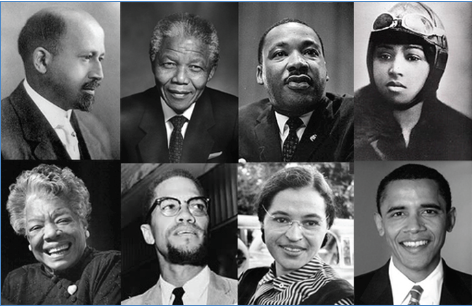Black History Month

The Diversity Council meets during D Communtiy Block in the lobby of Benjamin Hall. If you are interested in joining the group, please contact either Robyn Duncombe or Ms. Mays.
February 11, 2022
Black History Month 2022
From activists and civil rights leaders like Harriet Tubman, Martin Luther King Jr., Malcolm X, and Rosa Parks to figureheads in politics, science, and culture, Black History Month commemorates the valuable contributions and heritage of African Americans within American history. As of 1976, each president of the United States has declared February to be Black History Month, with a certain focus. “Black Health and Wellness” is the focus for Black History Month this year. The month’s theme will focus on the African Diaspora’s history includes Black intellectuals, as well as “other ways of knowing (e.g., birthworkers, doulas, midwives, naturopaths, herbalists, etc.) throughout the African Diaspora” and how the Black population has been underserved by healthcare. (History.com Editors, “Black history month”)
What is Black History Month and Why Do We Celebrate It?
Every February, National Black History Month is an impactful remembrance that Black history is American history. This month-long commemoration in the United States is an opportunity to highlight Black excellence while also serving as a powerful reminder to recognize why systematic racism is a problem and to highlight the individuals and institutions working to address injustice.
The History Behind Black History Month
The Association for the Study of Negro Life and History (ASNLH) was created by Harvard-trained historian WhyCarter G. Woodson and influential clergyman Jesse E. Moorland, and was dedicated to investigating and promoting successes by Black Americans. In 1926, the organization promoted a nationwide Negro History Week, having chosen the second week of February to align with Abraham Lincoln and Frederick Douglass’ birthdays. “Negro History Week” had grown into Black History Month upon several university campuses by the late 1960s, due in part to the civil rights movement and a growing understanding of Black culture. In 1976, President Gerald Ford declared Black History Month, encouraging people to “seize the opportunity to honor the too-often neglected accomplishments of Black Americans in every area of endeavor throughout our history.” (Alem Tedeneke, “Black history month: What is it and why do we need it?”)











